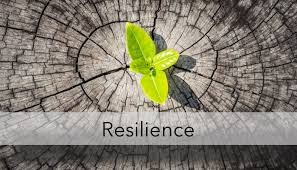
The resilience of a household or community is a key factor in determining and improving its levels of poverty and inequality. With the support of the Ford Foundation, COSA and its partners (Sustainable Food Lab, Root Capital, Lutheran World Relief, CIAT) developed accessible tools to facilitate how we can diagnose how households fare in difficult circumstances, from conflict to climate change. With more realistic knowledge, we can more readily and more accurately help to target interventions and improve outcomes.
|
Resilience is so important that we cannot leave it only for well-heeled projects; everyone should be able to make use of resilience knowledge. |
These streamlined indicators and pragmatic assessment options are made widely available for public benefit. Together, they offer a more functional understanding of resilience and allow a wider range of development organizations, government and other global users to understand the topic. The relative simplicity and lower costs mean that the tool can be applied across projects of different scales, including many groups or initiatives that have neither the budget nor the inclination to undertake in-depth scientific research.
There are a number of recent initiatives that have undertaken to understand resilience and, while many are excellent in their concepts, most of them share two common shortcomings: complexity and high implementation costs. Many are impractical for widespread use by the majority of development projects or supply chain managers. Without a simple, low-cost way to evaluate and measure resilience, access to this vital knowledge is restricted to all except for the most well-funded projects that can afford to engage dedicated scientific or academic support.
The COSA Resilience Measurement approach takes a different path. It builds on the best current work to distill the optimal practices into a pragmatic and relatively low-cost process that permits a solid basic understanding while increasing broad access to these simpler tools.
The COSA Resilience Measurement approach began with a thorough review of current global best practices and the growing literature on the topic. It then gathered a Working Group of leaders in the field to help filter and test the most vital practices so that resilience can be more readily measured, understood, and acted on.
This work was recently unveiled in a recorded webinar co-hosted by COSA with the Sustainable Food Lab. Over 260 participants representing leading institutions registered to hear Dr. Elena Serfilippi, Daniele Giovannucci and Stephanie Daniels (Sustainable Food Lab) introduce the new approach to resilience. The event included the perspectives of a financial institution (Root Capital), a government (USAID), and a major NGO (Catholic Relief Services).
COSA is producing several publications on resilience including one posted in today’s blog that examines resilience in the context of a coffee farming crisis.
For more information contact Elena Serfilippi: es@thecosa.org
The Committee on Sustainability Assessment (COSA) is a consortium of institutions fostering effective ways to measure and understand sustainability in the agri-food sector. During our Partner Spotlight from 23-27 October 2017, we'll be examining pragmatic ways COSA metrics are driving innovations and sustainability practices, through the applications of tools ranging from impact assessments to performance monitoring. As part of the Partner Spotlight, a webinar on “Effective Tools for Understanding, Managing and Accelerating Impact” will be held on Thursday October 26th at 15:00 Rome time (13:00 GMT).
Metrics is a very relevant area of inquiry for the Partners in GFAR, who are embarking on a Collective Action to develop an "Innovative Approach to New SDG Metrics for Agri-food Innovation."
GFAR Secretariat is turning the spotlight on the work and Collective Actions of Partners in GFARwho share in our mission to strengthen and transform agri-food research and innovation systems globally. Not a GFAR partner yet? Join now!
